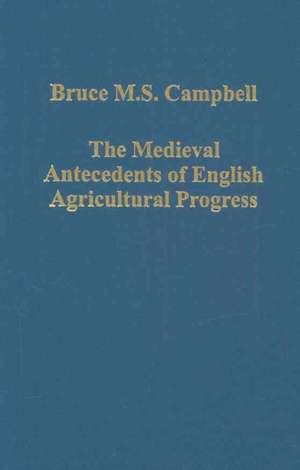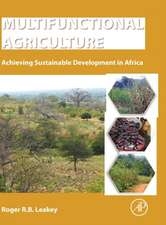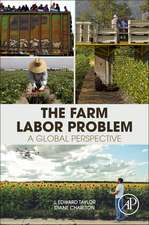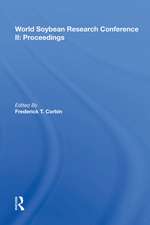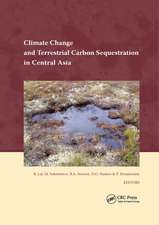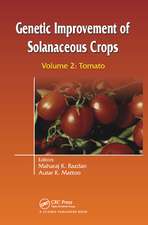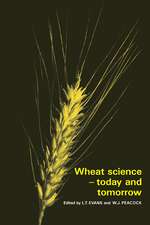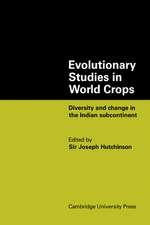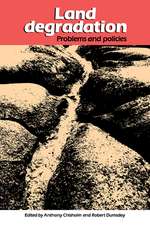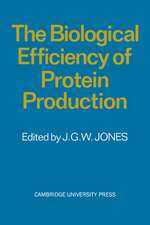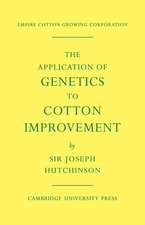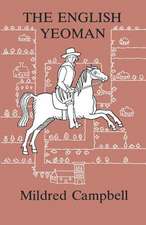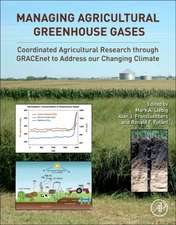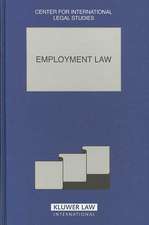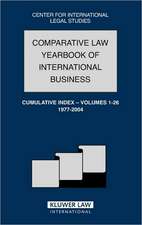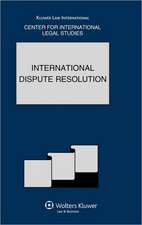The Medieval Antecedents of English Agricultural Progress: Variorum Collected Studies
Autor Bruce M.S. Campbellen Limba Engleză Hardback – 28 mai 2007
| Toate formatele și edițiile | Preț | Express |
|---|---|---|
| Paperback (1) | 449.41 lei 6-8 săpt. | |
| Taylor & Francis – 19 dec 2018 | 449.41 lei 6-8 săpt. | |
| Hardback (1) | 823.43 lei 6-8 săpt. | |
| Taylor & Francis – 28 mai 2007 | 823.43 lei 6-8 săpt. |
Din seria Variorum Collected Studies
-
 Preț: 313.38 lei
Preț: 313.38 lei -
 Preț: 311.41 lei
Preț: 311.41 lei -
 Preț: 299.55 lei
Preț: 299.55 lei -
 Preț: 325.68 lei
Preț: 325.68 lei -
 Preț: 406.12 lei
Preț: 406.12 lei -
 Preț: 311.18 lei
Preț: 311.18 lei -
 Preț: 325.31 lei
Preț: 325.31 lei -
 Preț: 396.01 lei
Preț: 396.01 lei - 9%
 Preț: 1039.89 lei
Preț: 1039.89 lei -
 Preț: 266.20 lei
Preț: 266.20 lei -
 Preț: 343.34 lei
Preț: 343.34 lei - 9%
 Preț: 938.10 lei
Preț: 938.10 lei -
 Preț: 351.48 lei
Preț: 351.48 lei - 9%
 Preț: 938.86 lei
Preț: 938.86 lei -
 Preț: 335.37 lei
Preț: 335.37 lei - 9%
 Preț: 937.14 lei
Preț: 937.14 lei -
 Preț: 351.42 lei
Preț: 351.42 lei -
 Preț: 320.00 lei
Preț: 320.00 lei - 38%
 Preț: 766.84 lei
Preț: 766.84 lei - 23%
 Preț: 315.48 lei
Preț: 315.48 lei - 36%
 Preț: 740.06 lei
Preț: 740.06 lei - 34%
 Preț: 764.20 lei
Preț: 764.20 lei - 39%
 Preț: 684.75 lei
Preț: 684.75 lei - 29%
 Preț: 247.40 lei
Preț: 247.40 lei - 37%
 Preț: 488.89 lei
Preț: 488.89 lei - 38%
 Preț: 766.91 lei
Preț: 766.91 lei - 34%
 Preț: 769.51 lei
Preț: 769.51 lei - 38%
 Preț: 769.85 lei
Preț: 769.85 lei - 25%
 Preț: 225.28 lei
Preț: 225.28 lei - 25%
 Preț: 225.54 lei
Preț: 225.54 lei - 34%
 Preț: 767.07 lei
Preț: 767.07 lei - 34%
 Preț: 764.20 lei
Preț: 764.20 lei - 34%
 Preț: 736.38 lei
Preț: 736.38 lei - 34%
 Preț: 738.43 lei
Preț: 738.43 lei - 25%
 Preț: 226.52 lei
Preț: 226.52 lei - 33%
 Preț: 491.66 lei
Preț: 491.66 lei - 34%
 Preț: 485.78 lei
Preț: 485.78 lei - 34%
 Preț: 485.78 lei
Preț: 485.78 lei - 38%
 Preț: 766.34 lei
Preț: 766.34 lei - 36%
 Preț: 739.17 lei
Preț: 739.17 lei - 31%
 Preț: 473.94 lei
Preț: 473.94 lei - 18%
 Preț: 843.63 lei
Preț: 843.63 lei - 38%
 Preț: 774.91 lei
Preț: 774.91 lei - 38%
 Preț: 769.92 lei
Preț: 769.92 lei - 34%
 Preț: 764.20 lei
Preț: 764.20 lei - 50%
 Preț: 488.81 lei
Preț: 488.81 lei - 36%
 Preț: 488.49 lei
Preț: 488.49 lei - 34%
 Preț: 769.10 lei
Preț: 769.10 lei - 38%
 Preț: 766.99 lei
Preț: 766.99 lei
Preț: 823.43 lei
Preț vechi: 1283.85 lei
-36% Nou
Puncte Express: 1235
Preț estimativ în valută:
157.57€ • 168.49$ • 131.37£
157.57€ • 168.49$ • 131.37£
Carte tipărită la comandă
Livrare economică 17 aprilie-01 mai
Preluare comenzi: 021 569.72.76
Specificații
ISBN-13: 9780754659198
ISBN-10: 0754659194
Pagini: 364
Dimensiuni: 152 x 229 x 25 mm
Greutate: 0.65 kg
Ediția:1
Editura: Taylor & Francis
Colecția Routledge
Seria Variorum Collected Studies
Locul publicării:Oxford, United Kingdom
ISBN-10: 0754659194
Pagini: 364
Dimensiuni: 152 x 229 x 25 mm
Greutate: 0.65 kg
Ediția:1
Editura: Taylor & Francis
Colecția Routledge
Seria Variorum Collected Studies
Locul publicării:Oxford, United Kingdom
Cuprins
Contents: Introduction. Progressiveness and backwardness in 13th- and early 14th-century English agriculture: the verdict of recent research; Agricultural progress in medieval England: some evidence from eastern Norfolk; Arable productivity in medieval England: some evidence from Norfolk; Land, labour, livestock, and productivity trends in English seignorial agriculture, 1208-1450; A new perspective on medieval and early modern agriculture: 6 centuries of Norfolk farming c1250-c1850 (with Mark Overton); Norfolk livestock farming 1250-1740: a comparative study of manorial accounts and probate inventories (with Mark Overton); Commercial dairy production on medieval English demesnes: the case of Norfolk; Measuring the commercialisation of seigneurial agriculture circa 1300; Matching supply to demand: crop production and disposal by English demesnes in the century of the Black Death; Constraint or constrained? changing perspectives on medieval English agriculture; Index
Notă biografică
Bruce M.S. Campbell is Professor of Medieval Economic History at the School of Geography, Archaeology and Palaeoecology, The Queen's University of Belfast, UK.
Recenzii
’Although some of Campbell’s findings have been amended or amplified by subsequent research, none of the papers in this remarkably coherent collection appears outdated, and despite some inevitable overlap can usefully be read together by historians interested in longterm agricultural progress and technological change.’ English Historical Review ’...this is a well-produced collection of essays in which all medieval agricultural historians will find much of interest.’ Economic History Review
Descriere
The ten essays assembled in this volume are important contributions to the present re-assessment of how the medieval ’backwardness’ of English agriculture was transformed into modern ’progress’. They provide clear empirical evidence that, when and where economic, environmental, and institutional circumstances were ripe, medieval cultivators were as capable of securing high levels of land productivity as their early modern successors.
